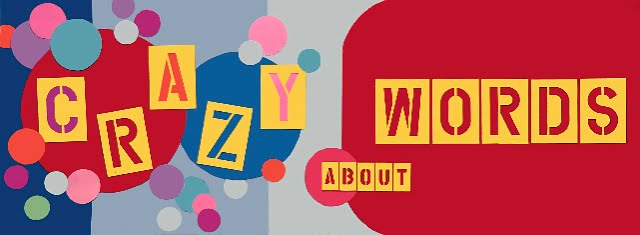Sometimes a very ordinary word goes to extraordinary ends to get your attention …
I walked out for a bit of fresh air and a look at the coming-on moon before going to bed one hot and humid Saturday night in August two years ago. On my way back in I had to sidestep to avoid squishing slugs which had appeared on the slate walkway during the five minutes I was gone.
If you’ve ever stepped on one you’d remember. It’s more like slipping on a banana peel than crushing a bug, and I muttered, “Damn things … you could really break your neck.”
I counted six of them in the course of a few feet (a “slugfest!”) and stopped to notice how each moved ever so slowly, or just lay there in its slime. They seemed to have no other destination or purpose than to get under my feet, after feasting on the leaves in my garden.
Then I observed that they resembled apostrophes, and felt a little better about them, because I’m a big fan of punctuation. Which got me thinking about the word … “s-l-u-g”. Nice little four-letter guy … an anagram of “lugs” … too bad there isn’t a word “glus”… and what might it mean if there were?
Besides being the name for these slimy, slippery creatures that no one can warm up to, “slug” is a verb and a noun meaning “punch,” as in, “… then he slugged the guy.” And, of course, we call people who seem lazy and unmotivated “slugs” or “sluggards” … no doubt derived from the characteristic “sluggish” movement of the lower form. Then, we have “slug” as a piece of metal, a blank, to be made into a bullet or a counterfeit coin. And, oh yes, there’s a slug of water, or some other liquor.
It’s interesting to speculate on the etymology, how over the centuries, these several meanings might have derived from one original idea of something slow and heavy. And it’s fun to realize how we’ve built on this little word to get sluggish, slugger, slugging average, and slugfest.
It occurred to me that if you think of a slug as a “snail,” to which it is very closely related, you instantly upgrade its image; not only does no one gag when you mention a snail, most people smile at their mental image of a mythic, self-reliant creature toting its mobile home along, looking, for all the world, like a moving Scotch tape dispenser. Or they picture delicious escargot bathing in garlicky butter.
My reverie ended with a chuckle as I realized how much time I’d spent on this most unlikely subject. Most people would be waxing poetic over the magnificent moon while I’d been looking down at what must be pretty near the bottom of the evolutionary scale.
I was in for a pleasant surprise the very next morning when I grabbed the NYTimes “Week in Review.” Verlyn Klinkenborg, a brilliant essayist whose attention to the tiniest details of life gives me such pleasure, opened “The Rural Life” on the editorial page as follows:
“I do not detest slugs. They are a perfectly valid life form. I discover them in the garden with no surprise or alarm. I expect to find them on the stone walk in the early morning, and I step around them, respectfully. But now I find them on the walls of the house, climbing up the door jamb, climbing up the door as if they were going to pick the lock and come in out of the rain. In their form, their liquid droplike appearance, they distill the essence of this appalling summer. It’s as if the thunderheads – rising fungally above us – were raining slugs.”
What a nice coincidence, I thought, to be seeing analogies along with of one of my favorite writers …
But how much coincidence can there be before it’s called something else? I turned to the “Op-Eds” and Nicholas Kristof’s column title jumped off the page, “How To Lick A Slug”!
His essay was a thoughtful lament of the fact that kids these days do not value and learn from being outdoors as they once did. He ends with this sentence:
“Time was… most kids knew that if you licked the underside of a banana slug, your tongue went numb. Better that than have them numb their senses staying cooped up inside.”
And the next day’s NYT crossword offered the clue “Mays” for which the answer was “slugger Willie”!
My imagination had been captured by “slug” to which I’d previously given no mind whatever. With its appearance now compared to a drop of water, a banana, and an apostrophe, the slug has great metaphorical potential for a wordsmith.
But was the Universe conspiring to tell me something more? Had it brought this lowliest of creatures and simplest of words dramatically to my attention for some good reason? Or was it just a coincidence?
The naturalist, William Burroughs, once said, “In the magical universe, there are no coincidences and there are no accidents. Nothing happens unless someone wills it to happen.” And Elizabeth Kubler-Ross adds, “All events are blessings given to us to learn from.”
I thought about it and remembered that only ten days earlier, I’d had a minor heart problem which landed me in the ER. At the conclusion of several hours of testing, the heart specialist said, “You’ve got to remember to slow down.”
The slugs were my reminder.
